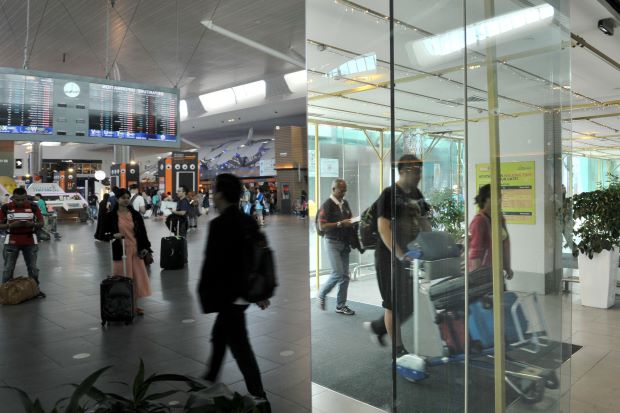Buying to rent may not be a good idea
RENTING out a house or apartment used to be a source of income that would help to pay back the loan instalment or increase one’s available income.
Today, this is no longer a good idea, particularly for those whose income is just enough to meet their needs in the near- or short-term. This is because many people have become less honest.
Those who buy a property with the idea of renting it out may find themselves dealing with a delinquent tenant. To illustrate the situation, I reproduce part of a letter from a reader who is having sleepless nights.
“I have rented an apartment to a Bangladeshi family for a monthly rent of RM900 for several years without a written tenancy agreement. The rental payment went on smoothly until roughly nine months ago, when the tenant started delaying payment of both rental and water.
The rental and water payment was owed several months. Every time he said he would pay, but ended up not paying. He now owes me more than three months rent and more than six months water and has refused to move out, saying he needs time to find a place.
What can I do to get him out, if he continues staying without payment? People have advised me to lodge a police report and get the Rela to forcibly move him out. Is it legal to cut off the water and/or force the tenant out?”
To start with, it is legally wrong to disconnect the electricity or water. Once rented out, the tenant acquires a special kind of right to be on the premises.
A breach by him allows the landlord to terminate the tenancy. Thereafter the tenant becomes liable to pay double rent. The landlord should get a court order to evict him. I don’t think making a police report or approaching Rela will help.
This does not go very far in helping the reader, but what I have to say could help readers who are renting out their property of the type referred to, or who are planning to do so.
Such a person should consider carefully whether he has sufficient spare funds if he is taking a loan. If he is a cash buyer or has resources to pay the instalments then it is fine.
This is because rent will not roll in immediately once the property is ready. There will be a need to spend time and money on putting in some basic fixtures. Time may be required to find a tenant.
In the meantime, the loan instalments will become payable and if he is unable to pay, these will add up and attract penalty interest, increasing the amount of the loan. There will be an added problem if the tenant is only able to pay rent which is less than the instalment.
So what could a landlord do to safeguard himself? The landlord should have a written agreement, and should require at least three months’ deposit at the outset and one month’s rental in advance, with the rental to be paid on or before the seventh day of each month, if not earlier.
Breach of these requirements would entitle the landlord to terminate the tenancy forthwith and require vacant possession.
Once the landlord has put himself in this position, he must monitor the payment of the rent. The tenant may pay late, but the landlord must not keep quiet. When there is a delay in payment but he pays within the month, you must give him a warning that the late payment is a breach.
The need to do this every month is important, because if the landlord allows the tenant to do this repeatedly, the law may regard this as acquiescence and a waiver by the landlord of the obligation to pay on the stipulated date.
If the tenant has not paid for two months the landlord should, by the middle of the second month, terminate tenancy and ask him to vacate the premises. At this stage the landlord has one and half month’s deposit, which allows him to have time to take meaningful action against the Tenant.
Chances are that if the landlord proceeds with such promptness, the tenant will come forward and resolve the matter.
As a term for allowing the tenant to stay on, the landlord could require the tenant to pay the legal costs. In such an event, the tenant would in future pay the rent regularly or he would leave, allowing the landlord to let the premises to another tenant.
Going to court can be costly, but the landlord should not just give up. He should approach a lawyer who can help him with the problem. Not all lawyers are out to make big profits from every client. Some lawyers will even do it for a very low fee, just to help the tenant.
Going to court will look harsh and is something that the owner may not like to do. This is because, at the point of renting, tenants project themselves as very decent and nice people who have every intention of paying the rent promptly. The issue here is: does the owner want his rent to be paid?
If the owner wants to be kind, then the tenant is likely to take advantage of him and drag on the non-payment. Of course, if the landlord is so inclined, he must be prepared to pay the price for being nice.
 Law For Everyone By Bhag Singh The star
Law For Everyone By Bhag Singh The starAny comments or suggestions for points of discussion can be sent to mavico7@yahoo.com. The views expressed here are entirely the writer’s own.
Related articles:
No one wins when progress payments stop
http://www.thestar.com.my/opinion/columnists/law-for-everyone/2016/12/01/no-one-wins-when-progress-payments-stop-to-protect-yourself-ensure-the-agreement-includes-a-clause-g/















